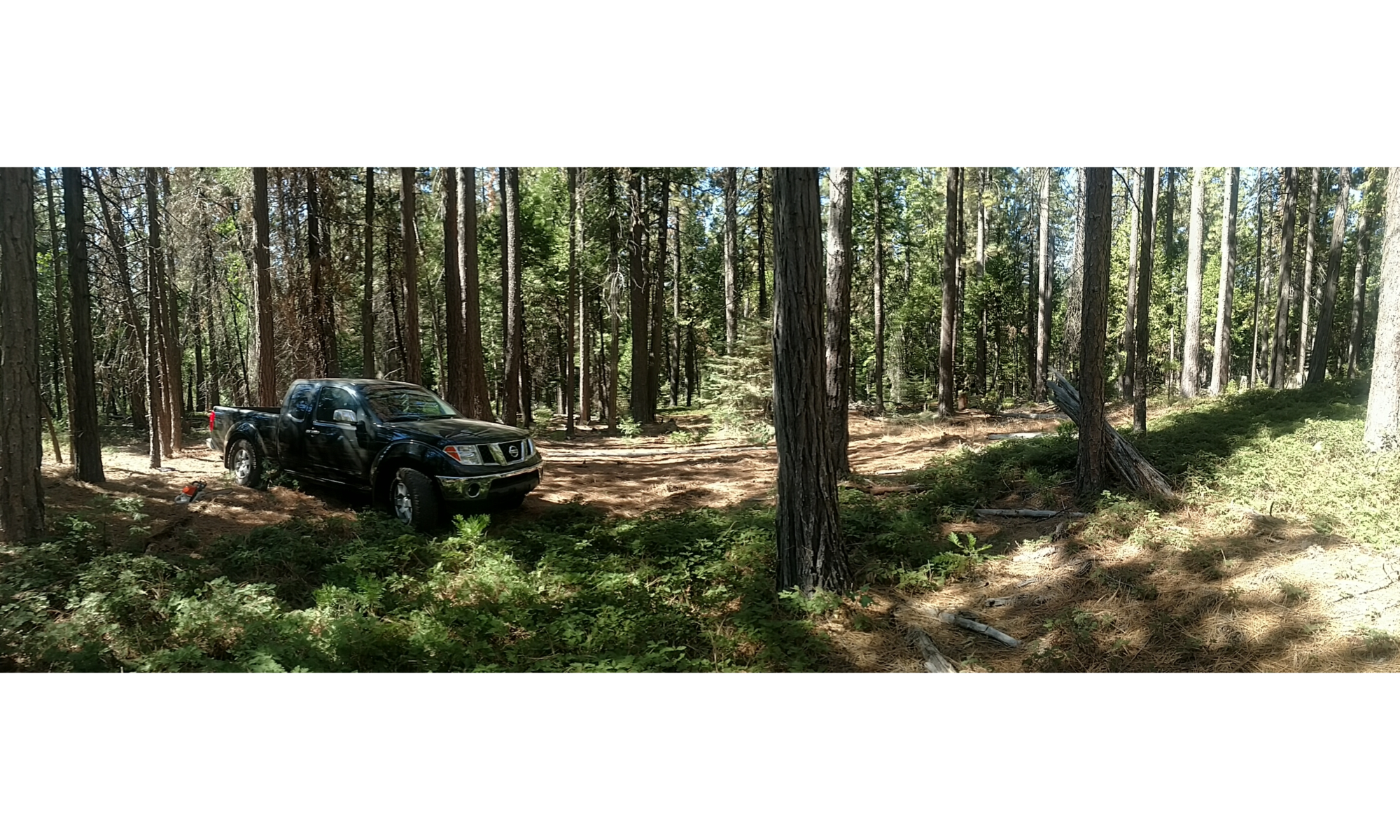Picking the right spot was a long process that couldn’t have happened without setting some baseline requirements and expectations for the land. What you need out of your getaway property is a personal decision and yours might not be even remotely close to mine, but mine were:
- No more than 3 hours from home, so it’s accessible without taking time off work – weekend visits are easily doable.
- Internet. Whether it’s good mobile data service or otherwise, I wanted to be able to work from my new place.
- Sufficient distance from neighbors on the bulk of the property. I’ve lived urban for 20 years, suburban before that, and I’m ready for a change. This one drives parcel size, layout, and the type of neighboring properties you’ve got. I looked at one 15 acre parcel that was surrounded by 1/2 acre neighbors. That makes something like 40 next door neighbors for me to piss off, even though it was a relatively big plot. That does not work for me.
- BIG TREES
I definitely didn’t have all of those goals dialed in when I started, but after looking at enough places my requirements started to gel. They shifted significantly as I saw what was reasonably possible within my budget, which is of course the big limiting factor. It is difficult to get a loan on bare land, especially a larger and more remote piece. It’s an illiquid asset and banks don’t want to get stuck with it if you default. You might be able to swing a construction loan with the land rolled in or sometimes the seller will carry, but it won’t look like a mortgage; generally the rate will be high and the term short. Most larger land deals are cash, so you’ve got to figure out how you’re going to fund it and what you’ve got to spend.
You can do a lot of good initial research online, but there is no substitute for working with a realtor who understands rural properties. They can find things on the market that you can’t, can help to ask the right questions, and can tell you things you might not figure out on your own, especially when you’re getting started. Without the guidance of my awesome realtors I might have jumped into a property that was gorgeous, huge, remote yet close to town, but didn’t have reliable year round access. I was thinking, I can get a snowmobile and hike in over the railroad tracks, but a fire truck isn’t going to do that. Once I was ready to build and tried to get homeowner’s insurance the insurance company would have told me to forget it, but by then it would have been too late. I’d have owned a beautiful piece of forest that I couldn’t do anything with. Just one extreme example of many.
Another thing that saved me a lot of trouble and money was having a friend who’s familiar with the arcane ways of the government entities that control land, the building departments, registrars offices, etc. I’ll see if I can get him to expound on this at some point, but his advice was always talk to the county, or whatever entity governs the property you’re looking at. They can be difficult to get hold of, but leave messages, call back, whatever it takes. Talk to them early and often. Ask for any documents you can get your hands on pertaining to your prospective parcel, old transfers of title, maps — especially maps — and read them carefully for any restrictions or requirements. Also, and this almost goes without saying, be sure you know what you’re getting. Have the corners marked by a surveyor and go walk the lines. Even the listing agent on my property was way off base about where the lines were. Turns out it goes a good deal further both north and south than we thought (hooray!) but that mistake could have gone against me too. Until you really know, assume you don’t know.
